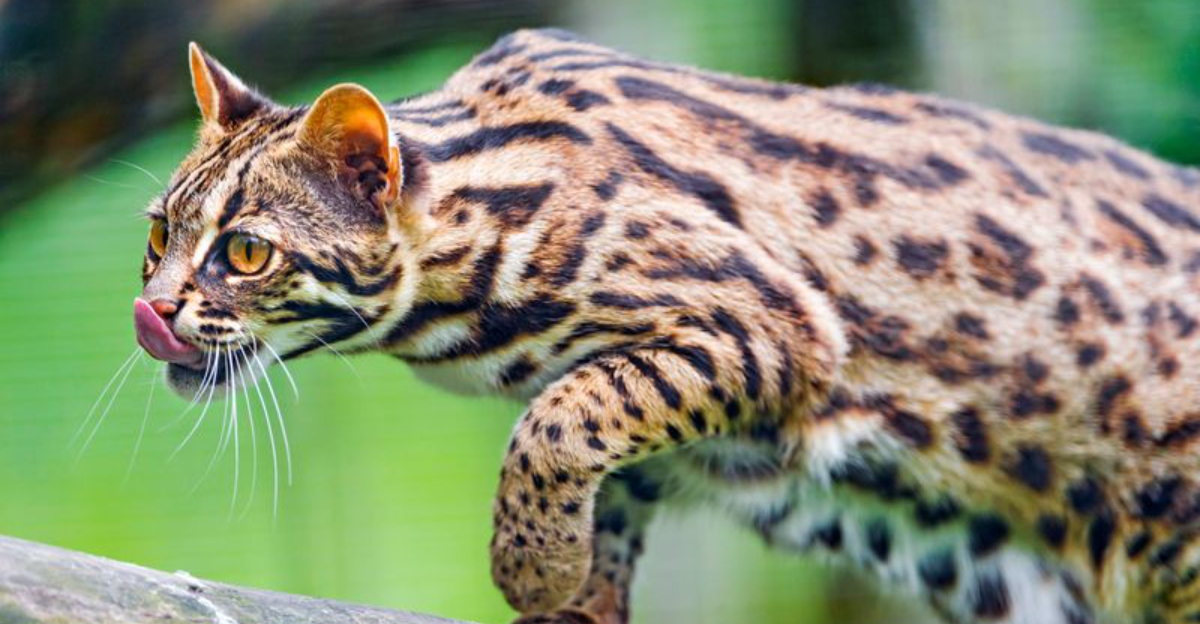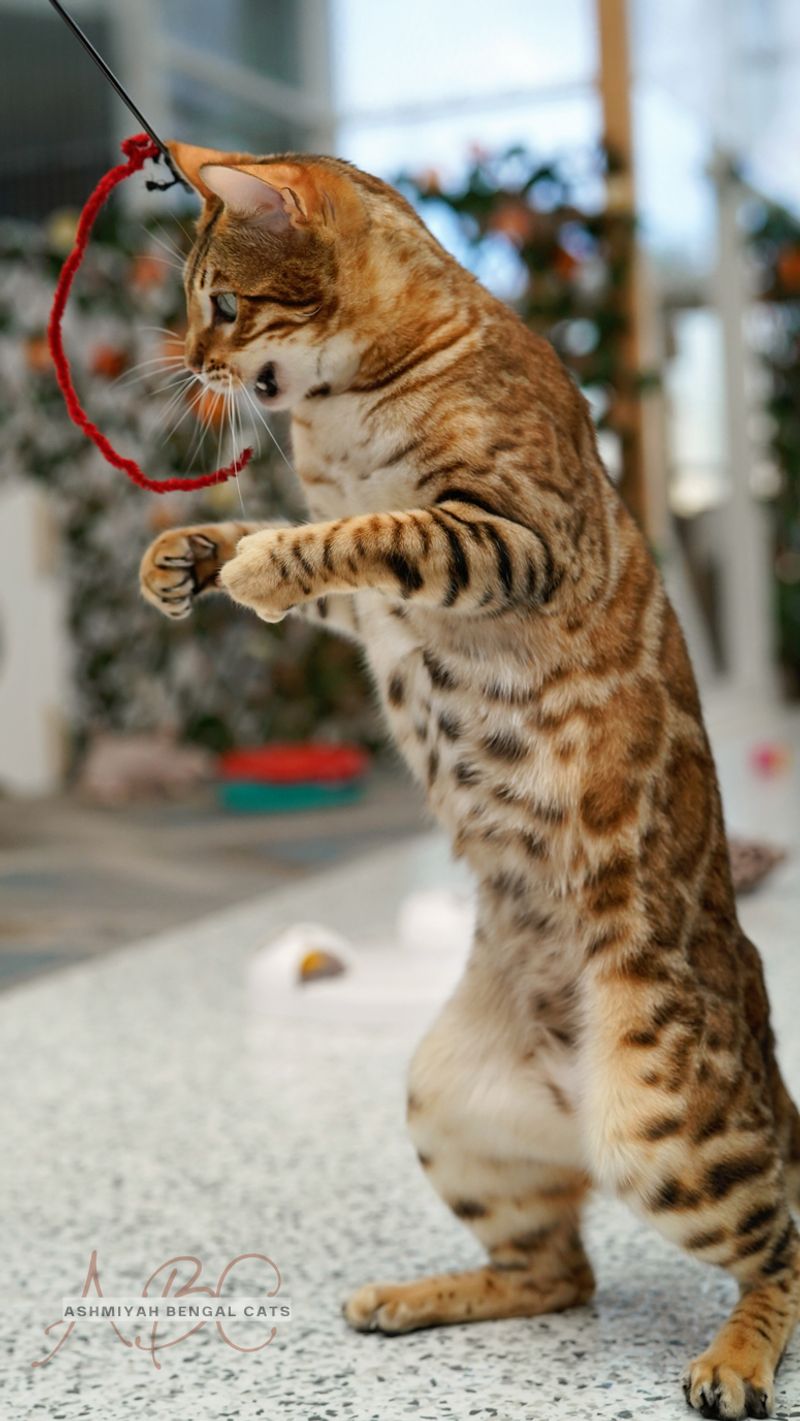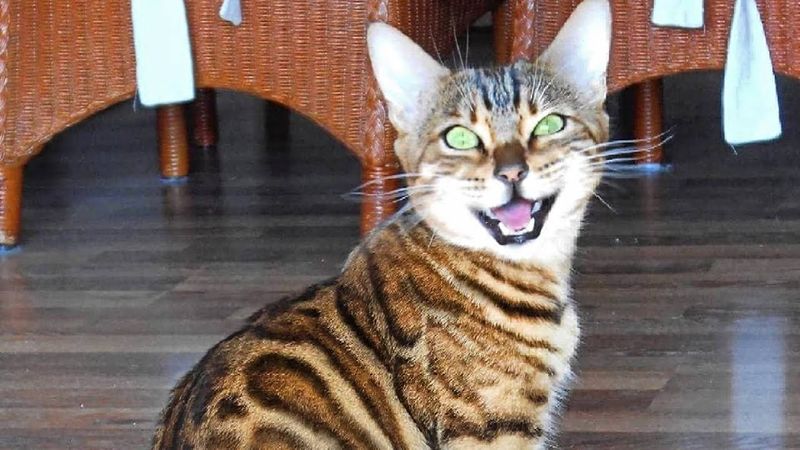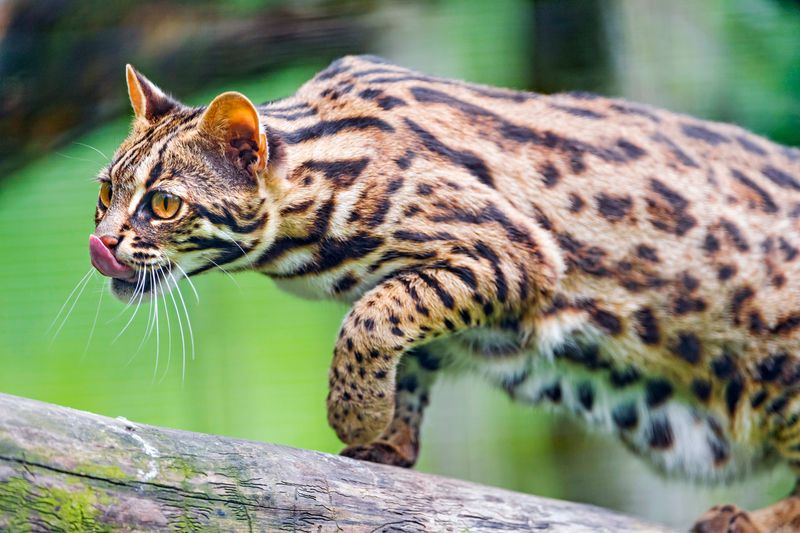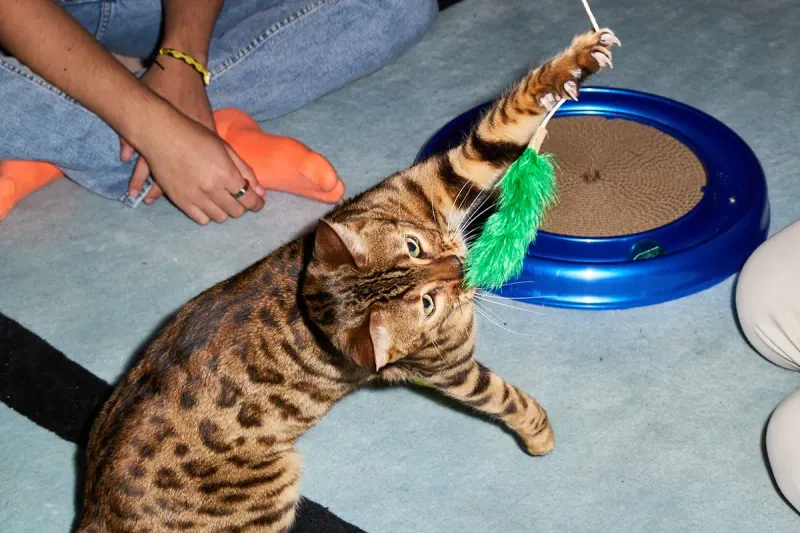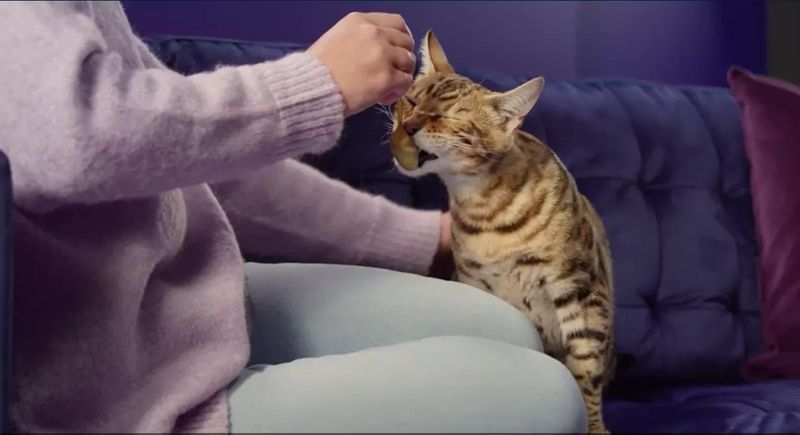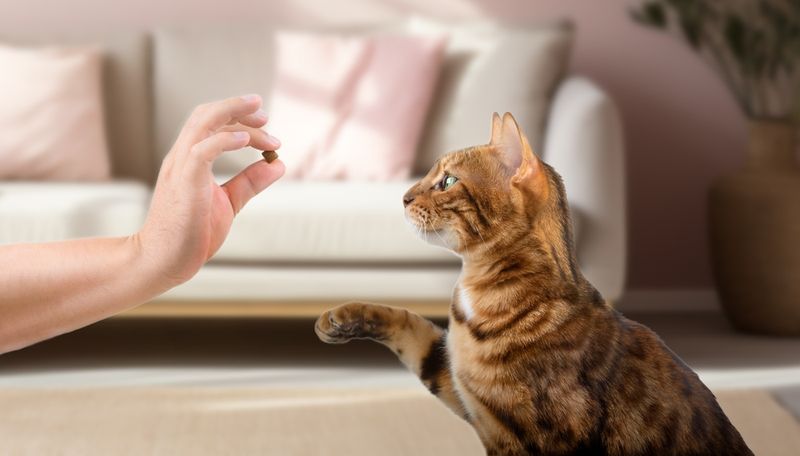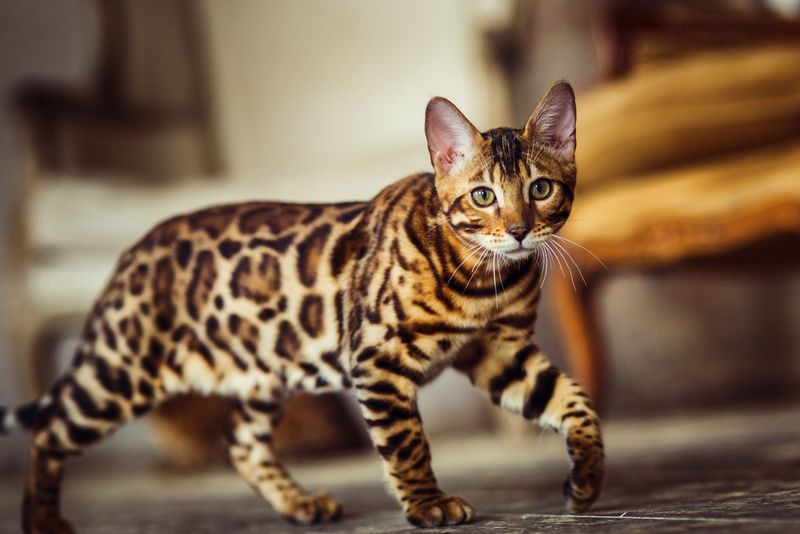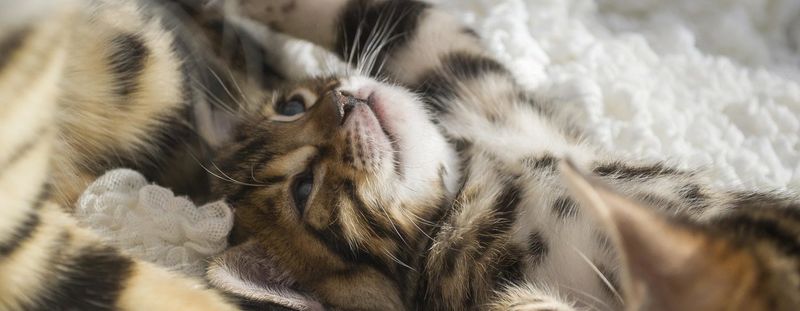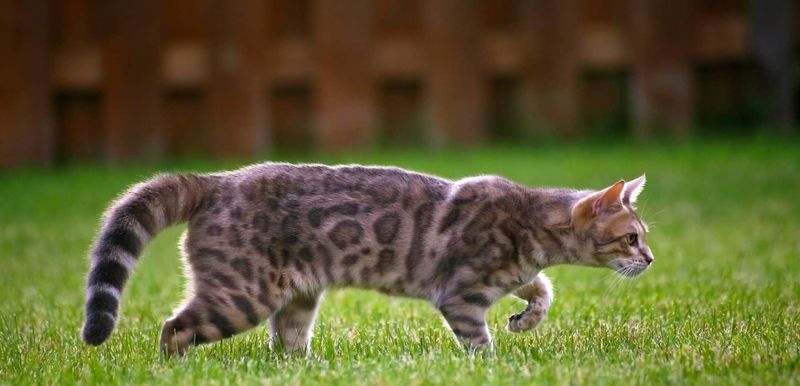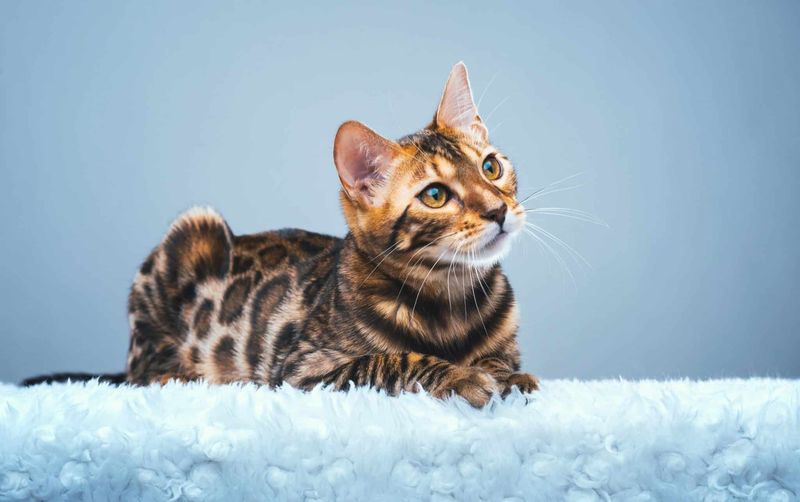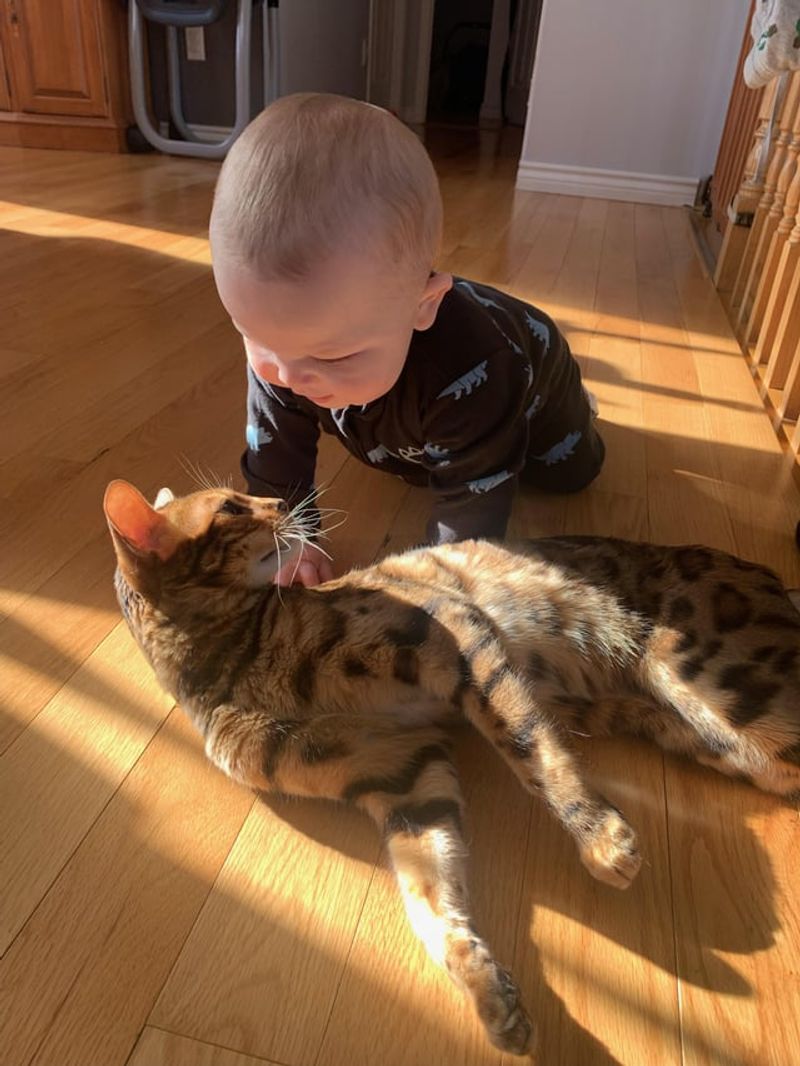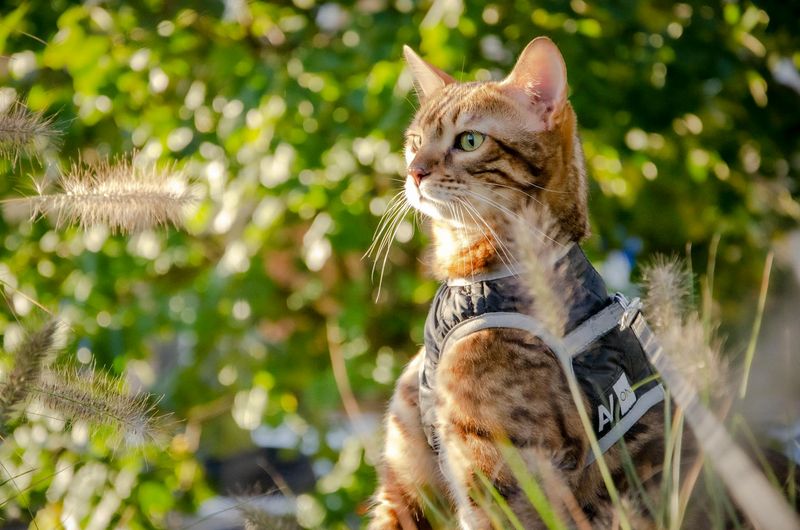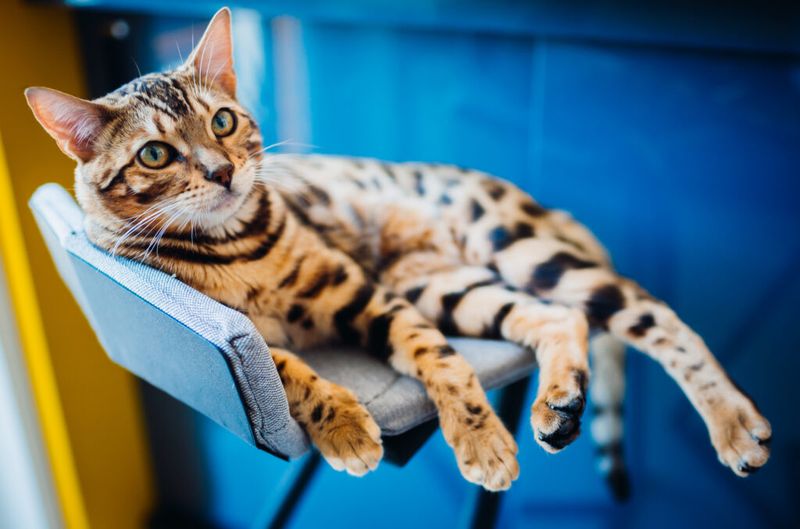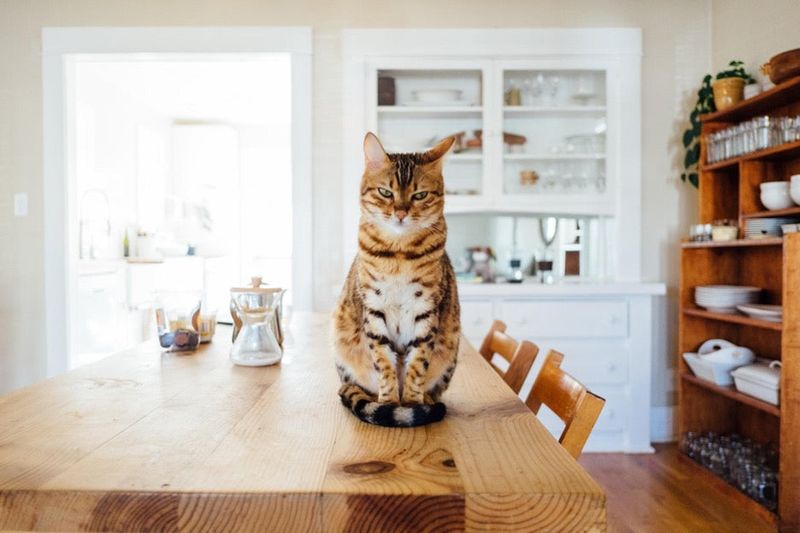📖 Table of Content:
- 1. High Energy Levels
- 2. Vocal Nature
- 3. Intelligent and Mischievous
- 4. Strong Prey Drive
- 5. Require Social Interaction
- 6. Challenging to Train
- 7. Expensive Maintenance
- 8. Space Requirements
- 9. Health Concerns
- 10. Territorial Behavior
- 11. Allergy Potential
- 12. Not Ideal for Children
- 13. Grooming Needs
- 14. Escape Artists
- 15. Dietary Needs
- 16. Demanding Personalities
- 17. Unpredictable Behavior
Bengal cats are undeniably beautiful, with their striking spotted or marbled coats and wild appearance. However, their unique traits and care needs mean they aren’t the perfect pet for everyone. Here are 17 honest reasons why a Bengal cat might not be the right fit for your home.
1. High Energy Levels
Bengal cats possess an energy that rivals even the most hyperactive of dogs. They require constant stimulation, whether through play or exploration, making them demanding companions. Their need for activity means they can become bored quickly, leading to destructive behaviors if their environment lacks enrichment.
These cats are not the type to lounge all day; they thrive on activity and interaction. Their vivacious nature can be overwhelming for owners expecting a more laid-back pet.
If you prefer a calm and restful home, a Bengal’s kinetic spirit might prove too much to handle.
2. Vocal Nature
For those who cherish quiet evenings, a Bengal might upset the calm with its chatty nature. Bengals are known for their vocalizations that vary from cute chirps to demanding yowls.
These felines will converse with you throughout the day, expressing their needs, desires, and even complaints. Their talks can be endearing but may become intrusive if you prefer silence.
Living with a Bengal means accepting a pet that actively seeks dialogue, demanding attention and conversation, which may not suit everyone’s lifestyle.
3. Intelligent and Mischievous
Cleverness defines the Bengal, but this intelligence can morph into mischief. These cats learn quickly and can open doors, cabinets, and even solve basic puzzles. While their brains crave stimulation, their curiosity often leads them into trouble.
Owners must stay one step ahead, childproofing their homes like they would for a toddler. Bengals require mental challenges to keep them occupied; otherwise, their smart antics can become problematic.
Their sharp minds and playful nature make them fascinating, though sometimes frustrating companions.
4. Strong Prey Drive
Bengals have a prey drive that harkens back to their wild ancestry. This instinct is strong and can be triggered by anything from toys to small animals. Their hunting prowess makes them relentless chasers, often catching and “gifting” their catches to owners.
This behavior, while natural, can be a drawback for those with other small pets. It’s crucial to provide them with ample outlets for their hunting instincts to avoid unwanted consequences.
If you have hamsters or birds, a Bengal’s instinct-driven nature might pose a challenge.
5. Require Social Interaction
Bengals are social creatures, thriving on interaction with their humans. They form strong bonds and may follow you around the house, craving companionship. Without enough social engagement, they can become anxious or act out.
This need for attention means they don’t do well left alone for long periods. A solitary lifestyle isn’t suited for them, as they may resort to noisy protests or mischievous acts.
For busy individuals, the Bengal’s demand for social time might be overwhelming.
6. Challenging to Train
Bengals possess an independent streak, making training a challenge. Unlike dogs, they may not respond readily to commands, often preferring to do things their own way.
Their intelligence means they can learn tricks, but patience is required. Training sessions should be engaging and rewarding, to capture their interest.
Owners must understand that Bengals value autonomy, and their stubbornness can hinder progress if not handled with creativity and persistence.
7. Expensive Maintenance
Owning a Bengal cat comes with a hefty price tag, from initial purchase to ongoing care. Their exotic appearance and desirable traits make them a costly breed.
Beyond the price of acquiring one, their grooming needs, quality diet, and potential health issues add to the expenses. Bengals require a balanced diet to maintain their striking coat and active lifestyle, which can strain budgets.
Prospective owners should be prepared for the financial commitment necessary to keep a Bengal healthy and happy.
8. Space Requirements
Bengals are not suited for cramped quarters. They need room to roam and explore, preferably with access to vertical spaces like climbing trees or shelves.
Their active nature requires a spacious environment to thrive, as small spaces may lead to frustration and destructive behavior.
For apartment dwellers or those with limited space, accommodating a Bengal’s spatial needs can be challenging. Providing enough room for them to exercise and entertain themselves is crucial to their well-being.
9. Health Concerns
Though generally robust, Bengals are predisposed to certain genetic disorders. Hypertrophic cardiomyopathy and progressive retinal atrophy are among the common health issues.
Regular veterinary check-ups are essential to catch any problems early, and maintaining a healthy diet can prevent some conditions.
Prospective owners should be aware of these potential health risks and the need for regular medical care, which can be a significant aspect of Bengal ownership.
Awareness and preparedness are key to managing their health needs.
10. Territorial Behavior
Bengals can display territorial behaviors, stemming from their wild lineage. They may mark their domain with scent or assert dominance over other pets.
This behavior may create tensions in multi-pet households, requiring careful management and understanding. Territorial disputes can lead to stress for both the Bengal and other animals in the home.
Owners should be prepared for these challenges and implement strategies to mitigate conflicts, ensuring a harmonious living environment for all pets.
11. Allergy Potential
For allergy sufferers, Bengals may not be the ideal companions. They shed dander and fur, which can trigger allergic reactions in sensitive individuals.
Despite their short coats, they aren’t hypoallergenic, and regular grooming is necessary to keep shedding in check.
Those with allergies should consider this factor before bringing a Bengal into their lives, as managing allergies can be an ongoing concern requiring both time and effort.
12. Not Ideal for Children
While some Bengals may adapt to family life, their energetic and sometimes unpredictable nature can make them challenging companions for young children.
Their play can be rough, and their quick movements might startle or overwhelm little ones. Supervision is recommended to ensure safe interactions.
Families should evaluate whether a Bengal’s lively temperament fits the household dynamic, as they may not be the perfect playmates for every child.
Adopting a Bengal requires consideration of their impact on all family members.
13. Grooming Needs
Despite their short hair, Bengals benefit from regular grooming to keep their coats sleek and healthy. Their fur sheds moderately, requiring consistent brushing to manage.
Grooming also serves as a bonding opportunity, allowing owners to check for any health issues.
However, not all Bengals enjoy being brushed, so patience and gradual acclimation are necessary.
Prospective owners must be willing to invest time in maintaining their Bengal’s beautiful coat, ensuring it remains a striking feature of the breed.
14. Escape Artists
Bengals are notorious escape artists, their curiosity driving them to explore beyond their boundaries. They can slip through small spaces or find creative ways to open doors and windows.
This adventurous spirit requires secure enclosures and vigilant monitoring to prevent escapes.
Owners should be prepared to enhance their home’s security to keep their Bengal safe, understanding that these cats will seize any opportunity for adventure.
15. Dietary Needs
Bengals have specific dietary needs to support their high energy levels and maintain optimal health. They thrive on high-quality protein-rich diets, which can be more expensive than standard cat food.
Owners must be willing to invest in premium nutrition to keep their Bengal in peak condition.
Understanding their dietary requirements is crucial, as poor nutrition can lead to health issues and reduced vitality.
Feeding a Bengal involves more than just filling a bowl; it’s about nourishing an active and vibrant life.
16. Demanding Personalities
Bengals possess strong, demanding personalities, often seeking to be the center of attention. They are assertive, knowing what they want and how to get it.
Their confidence can be charming, but also exhausting for owners not prepared for such a spirited companion.
These cats require an owner who can match their boldness with understanding and patience, embracing their unique character as part of the Bengal experience.
17. Unpredictable Behavior
Bengals can be unpredictable, with sudden bursts of energy and unexpected actions. Their spontaneous nature keeps owners on their toes, never knowing what they’ll do next.
This unpredictability can be exciting but also challenging, particularly for those who prefer a more predictable pet.
Living with a Bengal means embracing the unexpected and finding joy in their lively antics and surprises.
